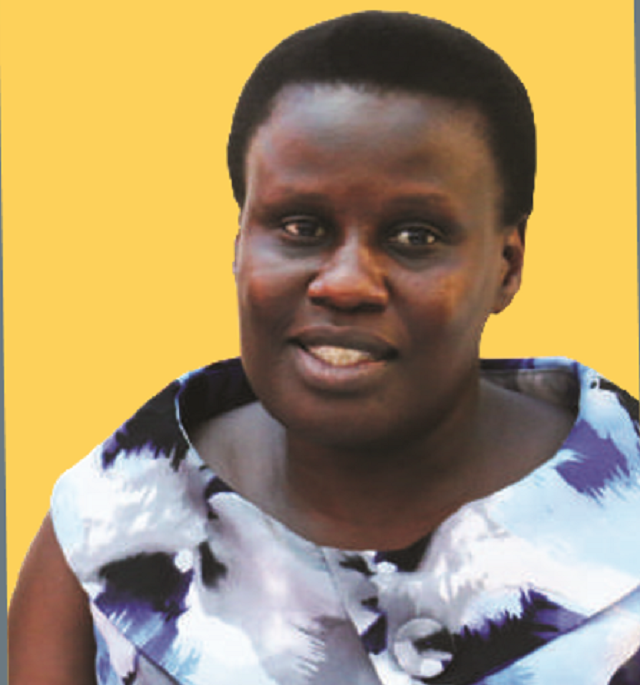
Dr. Gudula Naiga Basaza is the chairperson of Uganda Women Entrepreneurs Limited (UWEAL). She spoke to The Independent’s Agnes E. Nantaba about women entrepreneurship in Uganda.
What are the key elements in your style as a manager?
Our management style seeks to satisfy the interests of the different categories of members ranging from individual to cooperative members. As the chairperson of the Board, I make decisions guided by strategic plans. I have an oversight over management for implementation.
What is your assessment of the performance of women entrepreneurship in Uganda?
More women are getting involved in entrepreneurship legalising and professionalising their businesses with records. Women are no longer doing business as usual. More products by women are finding their way into supermarkets and other retail chains as women invest in branding and packaging. Looking at the history, most women were in agriculture but today more are taking up trade. We have diversification into construction and manufacturing. More women are also becoming information interested to keep up to date with market trends. They have taken up research and use it to improve on their products.
What is your strategy to executing your mandate of promoting women entrepreneurs in Uganda?
Women make up 52.5% of the labour force and are an important pool of potential talent to help Uganda meet its development goals, especially in entrepreneurship and micro, small and medium enterprises (MSME) growth.
We created a platform where aspiring and women entrepreneurs come together to support each other. Women are taken through training to make them better business people.
Reports indicate that women entrepreneurs face gender-based barriers to starting and growing their businesses? How can such barriers be broken down?
Many main business development service providers have not yet responded to the needs of women entrepreneurs. To fill this gap, efforts and resources should integrate a gendered perspective into programmes and policies, and targeted measures to accelerate services to women entrepreneurs.
Solutions must also be gender-specific because businesses owned by men and those owned by women are not similarly situated. Often, gender-neutral rules and procedures around procurement end up excluding women based businesses.
Under procurement, we push for revision of procurement laws to earmark 30% of government procurement to women, youth and persons with disabilities. Women owned businesses should also be permitted to prequalify for groups of contracts or certain categories of goods, works and services.
If only we could have implementation and enforcement of rules regarding prompt payment of women-owned businesses at the prime and subcontract levels while holding procurement entities and government officials accountable for the same.
UWEAL cites access to finance as a challenge to women entrepreneurs. How can banks and microfinance help to solve such challenge?
Women at micro level hardly have access to finance to grow their businesses. Most women do not have credit history and banks cannot give them credit. Others are too small to be managed by the banks. As UWEAL, we founded the Women Investment Club where we pool money for women to access finances at short notice and at low interest rate than they would have with the bank. We are glad that some commercial banks have responded to our outcry and started giving out loans to women without collateral security. Other financial institutions should also borrow a leaf.
What is the motive behind this year’s theme for ‘Month of the Women Entrepreneur’?
Each year globally, despite $15 trillion passing through government hands to suppliers through government procurement market, only 1% goes to women-based organisations. In Uganda the figure is between 0.5 – 1%. Other governments in Africa are recognising the need for inclusive public procurement; Kenya is making positive strides at the political level and women economic empowerment. We believe that government is big business to work with and yet we are not taking advantage of that opportunity. Looking at the Ugandan budget, the highest percentage is directed towards buying items from suppliers. So we want to be suppliers and benefit from the money we contribute in form of taxes.
What other challenges hamper the growth of women entrepreneurship in Uganda today?
Women professionals in formal employment are not boldly going into business and when they choose to join, the biggest challenge is how to manage the business. Majority women join business not from a professional point of view but for reasons like getting an extra income or after loss of a job.
How are you working to address such gaps and constraints to women entrepreneurship?
UWEAL helps women depending on the challenges. For challenges of business management, we take women through how to manage business in terms of finance, human resource, and other elements. With access to finance, the Women Investment Club helps together with the linkages we create with other financial institutions. For marketing, we are addressing it through the cooperatives strategy to link women to markets. We put women together to have the volumes and product standards that can fit regional and global markets.
How can the capacity of Ugandan women entrepreneurs to compete successfully in the local, regional and global markets be improved?
We have created a database of markets, what is demanded, and in what quantities and standards. We are currently running a project with Trademark East Africa targeting 4000 women engaged in urban trade and 400 women who are engaged in light processing for export.
Where do you see women entrepreneurship in Uganda in the next few years?
Individual women business will grow by over 30% in the next few years. More women shall also have their products certified and access bigger markets. We have gathered information on export and more women are approaching us for export ideas. We may, however, not retain many women in agri-business as many are channeling towards manufacturing.
****
editor@independent.co.ug
 The Independent Uganda: You get the Truth we Pay the Price
The Independent Uganda: You get the Truth we Pay the Price



